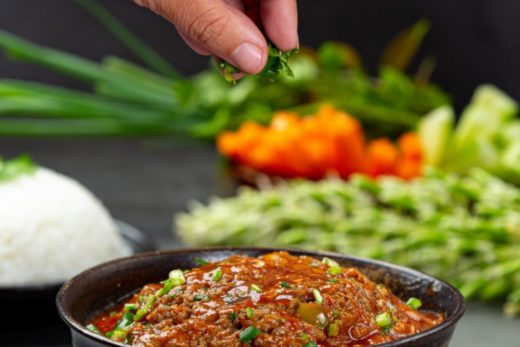From those humble origins, chili spread across the country, due in part to innovators like Lyman T. Davis, the founder of Wolf Brand Chili and the first person to sell canned chili, and William Frederick Gebhardt, who came up with the idea of pulverizing a blend of dried chilies specifically for making chili. More recently, chili’s popularity has been driven largely by chili cook-offs, which first became widespread in the 1950s and 1960s. (The first World’s Championship sponsored by the ICS was held in Terlingua, Texas, in 1967.)
The popularity of chili cook-offs was cited in a joint resolution, introduced on September 26, 1991, in the United States Congress by then-Representative James Inhofe of Oklahoma, as a compelling reason to designate chili the official food of the country. Chili, it said, “is an indigenous American cuisine that was created, refined, and approaches perfection only in the United States”; chili, it went on, “is a succulent, distinctive blending of meats and spices that has economically nourished countless millions of Americans since its inception in the 19th century”; chili, it noted, “embraces the highly individualistic traits of America’s heritage through its infinite varieties, highly personalized blending of ingredients, and many adaptive uses.”





